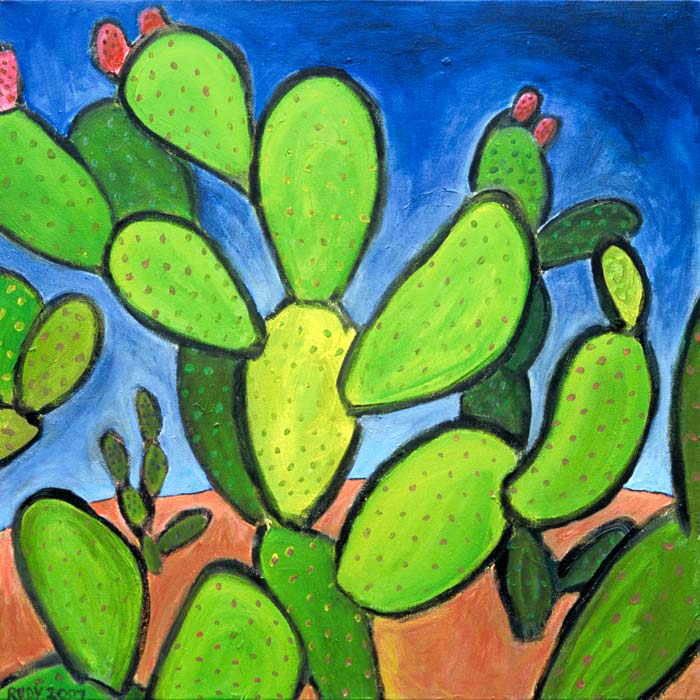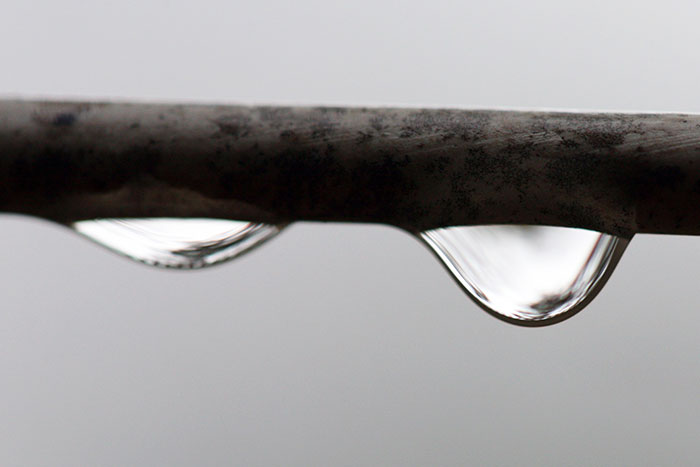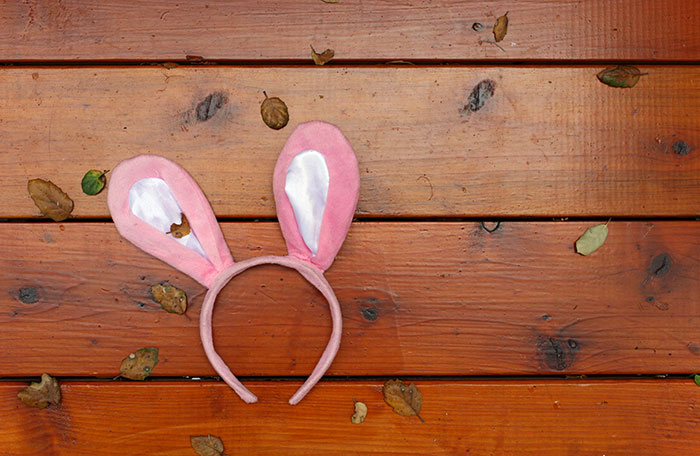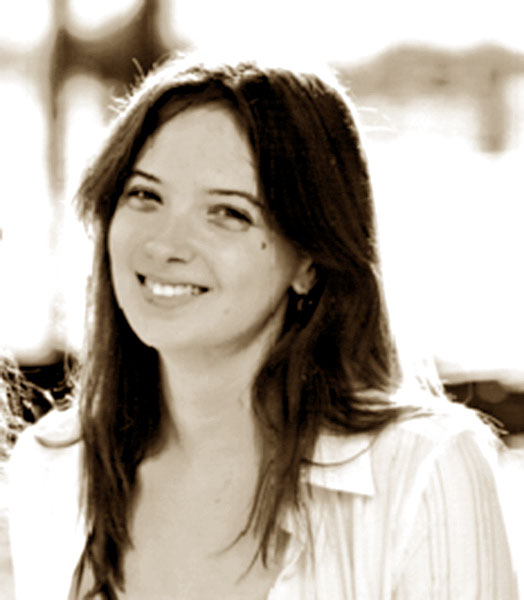
My Only Sunshine
by Emily C. Skaftun

Lief thought the wrecked car was a boulder. One of those road-colored cars everybody seemed to drive, it was crumpled against the road’s support pylon in such a way that all he saw as he hiked up the wash toward it was dull grey metal. It didn’t occur to him that rocks in the desert were never that shade of grey; he thought of home.
The rain was to blame: without the sun reflecting off shiny surfaces Lief was lost. It had been raining for three days already, almost since the beginning of Arielle’s business trip.
It had started as a dull drizzle, which was surprising enough. The town of Sunlight, Nevada almost never saw clouds, let alone actual rain.
But it was while Lief hiked through what passed for a river in those parts—a wash, really, dust-dry most of the year—that the rain had suddenly intensified, blinding him with more water than he’d seen in years. Not long after that he came across the boulder-wreck.
Once Lief identified the car as a car, he could see the signs: tire tracks leading from the road down into the wide wash, and a pair of deep ruts and sand spray some distance from the pylon against which the car had squashed itself. And—was he crazy?—it seemed to Lief that there was a curtain of even more vigorous rain enveloping the car itself. He looked for other cars up on the road, but of course there were none. Rain was like a natural disaster for the natives of Sunlight, so they’d all be hunkered down in their homes, nervously listening to the foreign sound on their tin roofs.
The tracks in the sand were clearly stamped, fresh. Steam rose from the front end of the car. Lief ran the remaining yards to the car, stumbling in the loose rock and falling once, and splashing his bare legs with gritty mud.
The front end of the car had accordioned. The windshield’s safety glass had shattered, but clung together in one wavy sheet. Shielding his eyes against the rain and the imagined horror, Lief peered through the passenger-side window. He thought the man was dead simply from his complexion; beyond pale, it had the bleached look of certain subterranean fish. Water poured into the car from the sunroof, washing his skin clean. Otherwise, Lief thought, there would have been blood. The man had been crushed by his engine.
Eyelids flickered open. Lief jumped, hitting his head on the window frame. “Shit,” he said. “Are you hurt? I’ll go get help.”
“I just wanted to see the sun again,” the man croaked. His rheumy eyes looked up into a dark, cloudy sky. And then closed.
It was like the sky opened up. Lief hadn’t thought it could rain any harder, but it did. It seemed to follow him as he ran for help, waited while the paramedics pronounced the man dead, and finally walked back home, wading up the ankle-deep river.
It rained all night long.
***
In the dream, Lief was falling. The whole town of Sunlight spread out below him, a jumble of squat buildings with flat roofs. Beyond that, the mottled desert stretched to the horizon, broken only by the purposeful black line of the two-lane highway and the meandering line of the river wash. He fell quickly, loving the way the air streaked past him. As he fell lower he saw the red rock formations, then the Joshua trees and the creosote bushes, then as he fell lower still he saw a pale man standing amidst the brush and cactus. The man looked up, and in the instant before Lief struck him he recognized the face as his own. He braced for a crash, but the impact felt more like a splash. As Lief broke apart, bouncing into a ring of droplets, his only thought was yay!
The rain was still tapping on the roof like hundreds of tiny hands seeking entry. Lief rolled over in the bed, and was only a little startled to find it empty. The house felt empty without Arielle, gloomy and dark. He was glad she’d be home later, so he could wake up tomorrow to her long blonde hair tickling his nose.
Lief got out of bed and went about his own business—thank god for telecommuting—but all day he thought about the rain, so after lunch he went for another hike. Fearing dead men, he avoided the river and hiked out into the desert in the general direction of the Sunlight Solar Plant. It was still raining, but lighter now, and as Lief weaved his way around jumping chollas and other spiky plants he started to feel better. The rain intensified the creosote and sage smells, adding a little ozone to the mix. It occurred to Lief that he liked rain. He missed it. Growing up in the Northwest, Lief had taken rain for granted, even been irritated by it. But in Sunlight it was novel, and it was familiar, and it was warm enough to enjoy. It loved him.
Lief paused, looking up into the praying arms of an old Joshua tree. He shook his head, feeling water fling from the ends of his hair. He decided to go back to the house, clean up a bit, maybe stick a nice bottle of wine in the fridge for Arielle. She loves me too, he thought.

Around four in the afternoon the clouds started to lighten. Though it wasn’t particularly windy on the ground, the clouds were moving across the sky as though they were being chased. Somehow, though, it kept raining. The clouds would be blown away, but then they would regroup. Shafts of pink-tinged light sliced through them like swords, sweeping the town like searchlights. Rainbows formed, dissolved, and formed again.
Finally a beam of light struck Lief and Arielle’s house, bouncing off puddles in the driveway and giving every surface a gilt edge of sun on water. The air around the house grew mystical with evaporation, even as the rain continued.
Arielle came home a few minutes later. Lief met her in the driveway, swinging her around in a wild embrace before she could even shut her car door. “Isn’t this amazing?” he asked.
Arielle certainly looked amazed. She stared at the sky, open-mouthed like a turkey. She ran a hand through her hair, then looked at the hand like she’d never seen it before. “So this is rain,” she said.
Lief laughed. “It’s the best rain ever! How ‘bout a dance?” He held out his hand, bowing slightly.
“You’re a nut,” she said, smiling. “But I’m going inside. It’s wet out here.” She grabbed her suitcase from the backseat and shut the car doors, then scurried toward the safety of the overhanging roof.
Lief and Arielle ate dinner out on the covered patio, sipping white wine, listening to raindrops, and recounting their days apart. Arielle told Lief about her meetings with potential Solar Plant investors—she was sure they’d have enough funding to start building the second collector array within months. Lief told Arielle about the dead man in the river, babbling on and on about his waxy skin until she shuddered and asked him to stop.
As the sun slid down the sky it left the clouds behind and its light poured in under the patio roof. The rain grew stronger too, clouds covering the rest of the sky.
“This is nice,” said Arielle.
***
The weather went on this way for almost two weeks. Sunlight residents went about with surprised looks on their faces, talking about the rain that just wouldn’t let up, the battling clouds, the beams of godlike light, the rainbows. It was the most rain the town had seen in thirty years, and it gave no hint of stopping.
Lief found that he liked it more and more every day. He went for long walks, loving the feel of the rain dripping off his hair and running down under his collar. One day he walked two miles into the desert, and when he got home he found Arielle cursing as she hurried to bring laundry in from the line.
“Why were you hanging laundry in the rain?” he asked, laughing.
When Lief saw the look on his wife’s face he regretted the laughter. “It was sunny the whole time you were gone,” she said. Lief looked up to the sky, noting that it was sunny still, and only just drizzling. “It just started again.”
Lief started gathering shirts off the line. “Sorry,” he said. “I could leave again.”
He meant it as a joke, but from the way Arielle glared at him he wasn’t sure she took it that way. She muttered under her breath as she went into the house, “Fucking rain.” Apparently she liked it less and less.
Lief waited until he was alone outside before laughing again. As far as he was concerned, she still hadn’t experienced rain worthy of complaint.
***
Arielle left for another business trip the next day. Lief held her new umbrella for her as she loaded her suitcase into the car, looking past her to the mushrooms that had sprouted on the little patch of grass they called a lawn. It was morning, and a double-rainbow gleamed vividly against dark clouds in the west. The rainbows were so bright that Lief could even make out the indigo between the blue and the violet. He pointed them out to Arielle, who sighed and leaned against Lief’s side.
“That really is beautiful,” she said. “Aren’t those supposed to be a promise of no more rain, though?”
“I think it’s just a promise of not so much rain that it kills us.”
Arielle laughed. “Well then it better stop soon.”
“You’re not gonna die, you big whiner.”
“No?” She turned around to face Lief. “Maybe not. I’ll miss you though.”
They kissed goodbye and when Arielle was safely in the car Lief folded up the umbrella, shaking water out of it. “You want this?” he asked, holding it up for her.
“I think you need it more,” she said.
Sure enough, the rain got heavier as soon as she drove off. The beams of sun faded away until clouds filled the sky, and it rained like that for three days straight.
Lief dreamed of falling every night. He was a raindrop; he knew that now. He was exuberant with the joy of falling, of being rain, of the wind funneling him into shape, of seeking people and plants to nourish. He loved all the plants and animals and people that he fell on, but the one he loved the most, in his dreams, as a raindrop, was Lief. He would do anything to land on Lief.
On the third morning, Lief woke to a drip on the side of his face, and rolled over to peer up at a yellow stain on the ceiling. He couldn’t help but feel that the rain had done it on purpose, actively burrowing into his house.
He put a saucepan under the drip and called a roofer. And then—and this is how he knew he was losing it—he went for a long drive. In a diner fifty or so miles from Sunlight, he stared out the window into a sheet of rain. When he got home, he couldn’t bring himself to ask anyone if it had rained while he was gone. He was certain it hadn’t.
On the fourth day Arielle came home, and the battle-of-the-clouds weather began again. It hadn’t stopped raining for over three weeks. In that time, Sunlight had received four times its average yearly rainfall. On his hikes, Lief was starting to notice fungus and mold growing on the prickly pears; Joshua trees were beginning to wilt and droop, their bristly limbs taking on an attitude of despair. In Lief and Arielle’s own xeriscaped yard, cactus and other succulents were growing soft with overwatering.
Lief had spoken to Arielle the night before, so he already knew her trip hadn’t gone well. Investors were spooked by the sudden yet unrelenting rain and clouds over the Sunlight Solar Plant.
Arielle pulled into the driveway, and the clouds parted. It was still drizzling, but now the house was highlighted in gleaming sunshine, turning water to liquid gold. This time she stepped right out into the trickle of rain. She stood there for a moment before Lief noticed her and came out of the house. “Has it been doing this the whole time I was gone?” she asked, a look approaching fear on her face.
“Mostly it rained,” he said. “It rained a hole in our roof.”
“Oh my god.” She shivered, though it wasn’t cold. She turned around in the driveway like she was looking for a place to go.
Lief retrieved her suitcase from the backseat of her car. “You probably want to get inside, right? Or under the overhang at least?”
Arielle nodded. “I guess I do.” They walked to the house but only stood on the porch, looking out at water falling. Water dried on their skin, making their hairs prickle.
“I think I’m going crazy,” Lief said after a while.
“Well I can see why,” Arielle said. “All the rain. If I hadn’t had some sun on this trip I think I’d have gone crazy too.”
“It isn’t that, exactly. I mean, I grew up in Oregon. I know about rain. But there’s something . . . different about this rain.” Lief stared out into it like a man hypnotized.
“Is there?” Arielle turned to him. “You know, I’d never seen rain before this.”
“Yeah, it hardly rains here.”
“I don’t think you understand,” she said, looking into Lief’s eyes until he tore away from the rain to look back at her. “I’d literally never seen it before. I’d hardly ever seen clouds.”
The thought surprised Lief, but only for a moment. He wanted to be surprised for longer, to disbelieve the statement. He would have a month ago. But the more he thought about it, he realized he couldn’t remember a single rainstorm that he’d been in with Arielle. He couldn’t remember one when she’d been in town, before this month. Or even a solidly overcast day.
Arielle shrugged. “The sun loves me.”
He wanted to be surprised, but instead all Lief felt was a cold, watery feeling in his stomach. “I guess it does.”

Lief only got as far as Las Vegas before sunset. He checked into the Treasure Island and called Arielle from his room. “Not a cloud in the sky,” she answered, her voice hushed. “And there?”
“It’s a real storm,” he said. His window looked west into dark clouds against a background of darker clouds. Palm trees whipped side to side by the pool and huge raindrops battered his window. He could imagine their psychotic enthusiasm, seeking him out, and it frightened him a little.
He drove west through Death Valley. The rain did slow down some, but to Lief’s growing unease, it didn’t stop. He drove south through the Cajon pass and then turned east toward Palm Springs and Arizona beyond. Phoenix. Tucson. North to Albuquerque. Farther north through the Canyonlands of Utah and as far as Salt Lake City. It rained. Lief pointed his car back toward Sunlight.
It had been a week when Lief pulled back into his driveway, roadweary, missing his wife and the sun. The clouds in Sunlight were the patchy pink he’d come to expect when he and Arielle were both there, rain and sun fighting for control of the sky. It had been sunny and clear all week.
Arielle met him in the doorway with a kiss, but Lief’s attention was immediately drawn to the stack of cardboard boxes behind her. He pulled away. “What’s this?” he asked.
Arielle’s tan face flushed. “The Joshua trees look much better this week. The Plant’s output is back to normal.”
“That’s nice,” Lief said, “but what’s all this?” He gestured to the boxes.
“Are you really going to make me say it?”
Lief said nothing. He was going to make her say it.
“Well, you have to go,” she said, a false light note pushing her voice into a higher octave. “It’s not good for the ecosystem or the economy of Sunlight.”
Lief tried to smile, but only half of his mouth cooperated. “I know that,” he said. “But I thought you could come with me. We’ll travel around. We can have two houses. We don’t have to spend all our time together—”
Arielle was smiling too now, but her smile was filled with more sadness than all the clouds could hold. “I can’t,” she said. “It isn’t good for me either.”
Lief felt like rain, liquid inside. He went back outside before the clouds in his eyes could burst. He walked and walked without knowing where he was going, but he wasn’t surprised when he found himself at the river. A thread of water ran down the middle of the wide sandy wash, and he followed it until he reached the road where he’d first found the wrecked car and the dying man. The car was gone now, hauled up out of the wash and probably long-since recycled. The tire scars were gone too. All that was left was the rain; Lief carried that with him now, and he thought he always would.
Now he understood the man’s final words.
About the Author

Emily C. Skaftun has lived in Seattle, California, London, Santa Fe, and Chicago, where she scooped up an MFA before bouncing like a Superball back to California. A graduate of the Clarion West Writers Workshop, she currently teaches writing at a variety of local colleges. Her fiction has appeared in The MacGuffin and Tertulia. And see the collection of Skaftun's stories, Living Forever and Other Terrible Ideas from Fairwood Press , November, 2020.
Please mention the author or this piece's name in your comment.